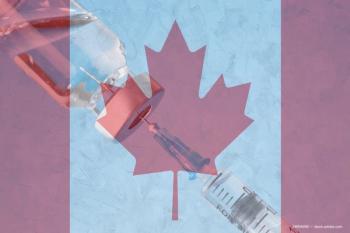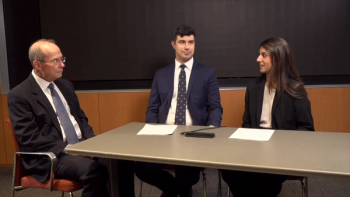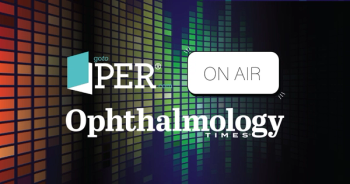
- Ophthalmology Times: February 1, 2021
- Volume 46
- Issue 2
PANORAMA trial targets NPDR
Analysis finds drug is broadly effective for reducing diabetic retinopathy severity.
This article was reviewed by Nathan C. Steinle, MD
A post hoc analysis of data from the phase 3 PANORAMA trial investigating aflibercept (Regeneron Pharmaceuticals) treatment in eyes with moderate to severe nonproliferative diabetic retinopathy (NPDR) shows that its benefit for reducing
“The true take-home message from this post hoc analysis is that greater proportions of eyes treated with intravitreal aflibercept compared with sham had a 2-step or greater improvement from their baseline Diabetic Retinopathy Severity [Scale] (DRSS) score regardless of baseline age, body mass index (BMI), ethnicity, hemoglobin A1c (HbA1c), duration of diabetes, or baseline DRSS level,” said Steinle, of California Retina Consultants in Santa Barbara, California.
Related:
Steinle noted that aflibercept performed extremely well across all 6 baseline factors.
“Therefore, retina specialists do not have to spend time during a busy clinic reviewing a variety of factors to determine whether a particular patient with moderately severe to severe NPDR is an appropriate candidate for aflibercept,” he said. “Instead, aflibercept worked well across the board, regardless of baseline factor investigated. Thus, we can treat confidently with aflibercept for advanced NPDR regardless of which patient is in front of us.”
The PANORAMA study enrolled patients with type 1 or 2 diabetes mellitus, DRSS level 47 or 53
Patients were randomly selected equally into 3 groups to receive aflibercept 2 mg every 8 weeks following 5 monthly doses (n = 134), aflibercept every 16 weeks following 3 monthly doses and one 8-week interval (n = 135), or sham (n = 133).
The aflibercept treatment schedules were followed through week 52. Patients in the arm receiving 2 mg every 8 weeks were treated on an as-needed basis after week 52 to week 100, and patients in the arm receiving 2 mg every 16 weeks continued at every-16-weeks dosing to week 100.
Related:
The topline data from PANORAMA showed that a significantly greater proportion of patients in both aflibercept arms achieved a 2-step or greater reduction (improvement) from baseline DRSS level at weeks 24, 52, and 100 versus the sham arm.
The post hoc analysis investigating whether there was a difference in treatment effect between aflibercept and sham by baseline factors divided patients into age by tertiles (≤ 52 years, > 52-61 years, > 61 years), ethnicity (Hispanic/Latino or not), 3 BMI subgroups (≤ 30 kg/m2, > 30-35 kg/m2, > 35 kg/m2), HbA1c tertiles (≤ 7.6%, > 7.6%-9.1%, > 9.1%), duration of diabetes tertiles (≤ 10.3 years, > 10.3-17.6 years, > 17.6 years), and baseline DRSS level (47 or 53).
Related:
Adjusted Mantel-Haenszel weight scheme was used to evaluate differences between treatment groups across all baseline factors, and treatment-by-subgroup interactions were evaluated by logistic regression.
In analyses of data from week 52 and week 100, there were no treatment-by-subgroup interactions for any baseline factors. In addition, both dosing regimens of aflibercept maintained statistical superiority over sham in all baseline factor subgroups.
--
Nathan C. Steinle, MD
e:[email protected]
Steinle receives research funding from and serves as a consultant to Regeneron Pharmaceuticals.
Articles in this issue
almost 5 years ago
Do you 'need' or just 'want' that new diagnostic imaging device?almost 5 years ago
Noninvasive angiography with OCT offers definite valuealmost 5 years ago
Ophthalmology residents retrained as palliative care extendersalmost 5 years ago
Exploring possibilities of myopia prevention and control in the USalmost 5 years ago
How AAOOP is taking the pandemic by the hornsalmost 5 years ago
EyePod: Ophthalmologist shares Holocaust survival storyalmost 5 years ago
Investigators examine anti-VEGF medications in cases with ROPNewsletter
Don’t miss out—get Ophthalmology Times updates on the latest clinical advancements and expert interviews, straight to your inbox.





























